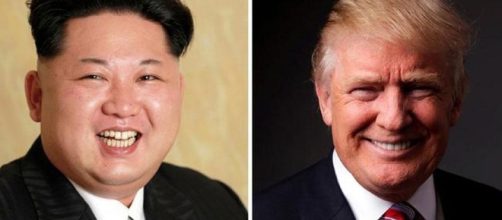A week after U.S. President Donald Trump said he is willing to talk to North Korean leader Kim Jong-un “under the right circumstances,” Pyongyang has responded to the challenge. Choe Son Hui, director general for U.S. Affairs of the North Korea Foreign Ministry, said on Saturday that the country is open to a dialogue with Washington “under the right conditions.”
The statements of Washington and Pyongyang represent a shift from the previous threats to use missiles on each other because of the deadlock. It could ease the ongoing tension in the region after its recent failed missile test and the deployment of a strike force by the U.S.
to the Korean peninsula.
New sanctions from U.S. Congress
The statement of Choe Son Hui, a member of the team of nuclear negotiators for North Korea, was made to media in Beijing after her trip to Norway. It came after the U.S. Congress warned the communist country on Friday that it would impose a new round of tougher sanctions against Pyongyang.
Following the threat from the House Of Representatives, the Foreign Affairs Committee of the Supreme People’s Assembly of North Korea wrote to the U.S. Congress to protest the new sanctions. The committee said the House of Representatives should think twice before it puts in place tougher sanctions, New York Post reported.
The committee said that if American legislators made more “reckless hostile laws” against North Korea, the Democratic People’s Republic of North Korea’s efforts to strengthen nuclear deterrents would gather greater pace “beyond anyone’s imagination.” The committee, reconvened in April, is part of an attempt by Pyongyang to improve relations with the outside world as the communist nation grapples with isolation, analysts said.
Sanctions target North Korea’s shipping industry and forced labor
The target of the tighter sanctions approved by the House of Representatives is the shipping industry of North Korea and companies that do business with the industry. With these sanctions, the country would be hit financially and it would affect Pyongyang’s ability to fund its ambitious nuclear program.
The bill, approved 419-1, would prohibit vessels owned by Pyongyang or nations that do not follow the UN resolutions against the ships' operation in American waters or docking at ports in the U.S. It would also ban the entry to the U.S. of products made by forced labor in North Korea.
Sanctions under the International Emergency Economic Powers Act would be made on anyone who uses North Korean slave labor.
It would hit companies in Africa and the Middle East such as Senegal, Angola, and Qatar that hire North Korean workers. The overseas workers, in turn, remit part of their salaries to the communist country which Kim Jong-un uses to advance the nation’s nuclear and missile program.


